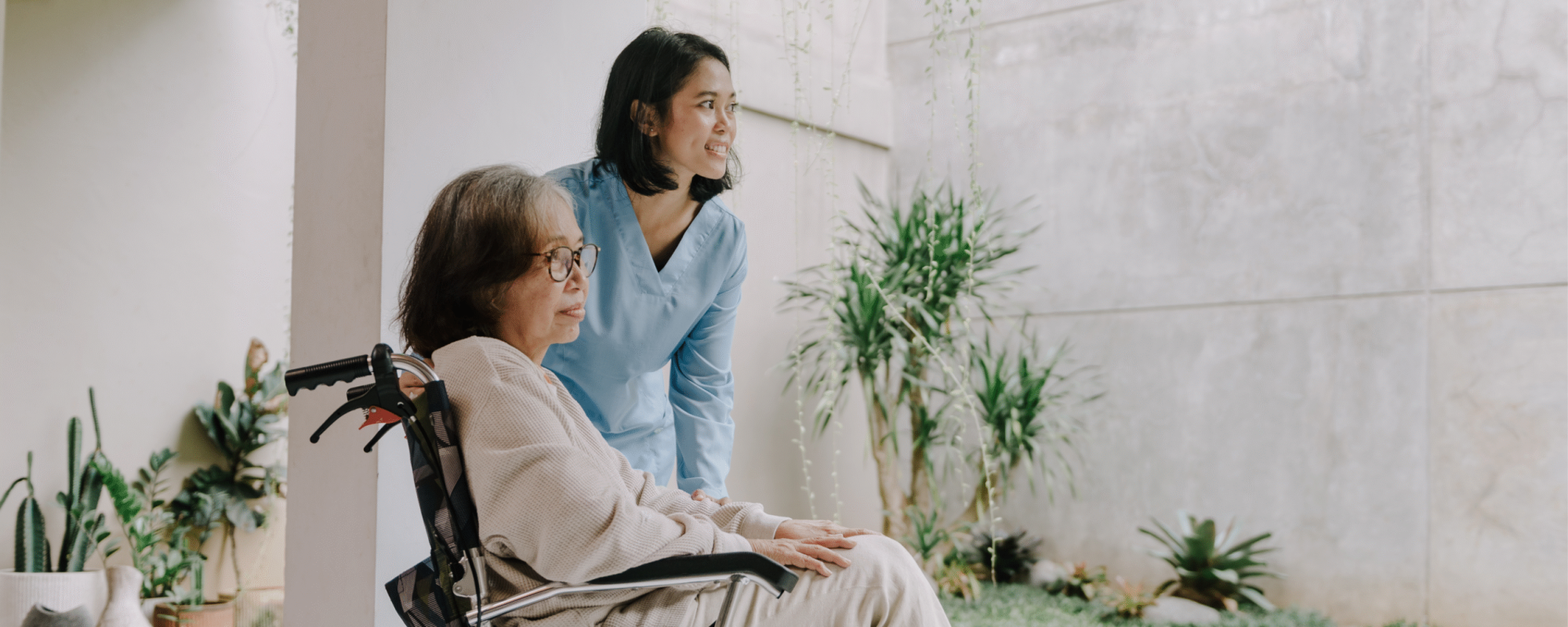
Care Givers
Elder care companions, also known as a home care aide, is a trained professional trained in providing attentive care to patients who require assistance with daily activities such as bathing, dressing, grooming, personal hygiene maintenance and companionship.
At NIAC@home, Elder care companions play a vital role in ensuring that patients especially the elderly, chronically ill, or recovering individuals – receive personalized, and compassionate support in the comfort of their homes.As our parents and grandparents grow older, they may face physical limitations, memory issues, or chronic medical conditions that make it difficult to manage daily life independently. Our Elder care companions help ensure that they stay safe, cared for, and emotionally supported.
Let your loved ones heal, thrive, and live with dignity — at home.
What do our Elder care companions do?
Our trained Elder care companions perform a range of essential services that promote safety, recovery, and quality of life:
Personal Care Assistance
- ● Bathing, grooming, oral hygiene, and toileting
- ● Dressing support and skincare
- ● Mobility and fall prevention
Daily Living Activities
- ● Meal planning and feeding assistance
- ● Maintaining a clean space
- ● Medication reminders
Emotional & Social Support
- ● Friendly conversation and companionship
- ●Assisting with hobbies
- ● Support during family visits or outings
Why Elder care Companions Are Essential in Home Healthcare
- ● Reduce hospital readmissions and healthcare costs
- ● Maintain independence for patients without compromising safety
- ● Provide relief to family members and prevent Elder care companions burnout
- ● Deliver care aligned with doctor’s guidance and clinical protocols
- ● Offer consistent monitoring
How can you trust NIAC@home?
At NIAC, every Elder care companions is:
FAQs
What is a home Elder care companions service?
Home Elder care companions service provides trained personnel to assist patients or elderly individuals with daily activities , such as bathing, dressing, grooming, personal hygiene maintenance and companionship.
Are your Elder care companions trained and certified?
Our Elder care companions are professionally trained, certified and have undergone background checks or verification.
How to ensure quality and safety at home?
Our Elder care companions are supervised by Care co-ordinators and we follow on-going training and protocols.
What services did the Elder care companions provide?
- Personal care and hygiene assistance
- Bowel and Bladder care
- Assisting with ambulation and mobility
- Assistance in feeding.
- Helping with prescribed exercises
- Companionship
- Maintaining a sympathetic attitude towards the patients.
Can Elder care companions handle bedridden or dementia patients?
Yes. We have Elder care companions who are specifically trained for bedridden patients(turning, bed sore prevention),Dementia and Alzheimer’s care,parkinsonism and stroke rehabilitation.
Is there any minimum service or contract period required?
We offer both short-term and long-term services.There is no strict contract, a minimum 10 days lock-in period is considered..And an advance notice is required for discontinuation.
What are the shift types?
We provide services for 2 shifts.
Shift type (12 hrs),and shift type (24 hrs)
Will I be provided with a male or female staff?
Male patients will receive male staff while female patients will receive female staff
What happens if the assigned Elder care companions(gDA) is absent or unable to report for duty?
In case an Elder care companion is absent due to any reason,we arrange a suitable replacement at the earliest based on the availability.
What kind of arrangement is required from the patient's end for the Elder care companions?
For a 12 hr staff shift: a chair/stool near the patient’s bed or care area,Washroom facilities,fresh water for drinking.Family may choose to provide a cup of tea or any kind of refreshment
For 24-hr shift staff : proper sleeping arrangement in patients room or separate, at least 1-2 hours of rest during the day, basic 3 meals should be provided during the day and minimum 2 cups of tea. Elder care companions should have access to clean washrooms and bathing facilities.

